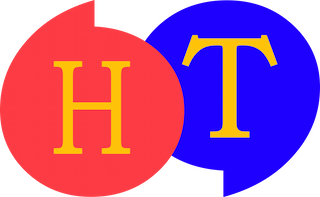In this post, I will be writing about the aptitude and qualifications translators need.
Of course, there isn’t actually a set of aptitudes or qualifications needed for translation; I have just supplemented common sense with my own thoughts to create a set.
Translation business is a language business. (It is also a knowledge business as well as a service business. I’ll explain this further in a separate post.) Therefore, no matter what, the first qualification one must have as a translator is an aptitude for language.

There is one point I think is essential here. Most people think translators are people who are good at other languages. However, because a translator is responsible for communication between two languages, fluency in only a foreign language is not enough to become a translator. If you were translating from English to Korean (most people whose native language is Korean usually translate from English to Korean), your Korean skills would have to be exceptionally good. To think, “I’ve spoken and used Korean without any problems all my life, so there must not be anything wrong with my Korean skills” would be a great misjudgment.
What’s important is not your ability to speak Korean but your writing skills. There are many times when I wonder whether the journalist even graduated from high school as I read recent online news articles. I’ve seen some extremely vague and ambiguous writing, and let’s not even get into spelling. I also suspected that the writer wrote things without even knowing what they meant. I don’t think I even have to talk about the level of Korean in the comments written under these articles. Even if these kinds of writers diligently study English grammar and vocabulary, they can’t become translators. It would be a fatal mistake and a sorry waste of time for themselves, and would be inflicting considerable harm on others as well.
So, related to aptitude, try this test at home. For 30 minutes, starting now, go read the Internet articles or comments posted around the Internet (choose your mother tongue here, not your second language) and see if you become irritated, not by the content of the articles, but by the style of writing or its clarity and accuracy. If you really do become irritated, you passed the linguistic sensitivity test. Someone without an excellent command of his or her own native language has absolutely no future in translation.
[bctt tweet=”Someone without an excellent command of his or her own native language has absolutely no future in translation.” username=””]
Give up and look for another line of work. If you’re planning on translating English to Korean, for example, your Korean skills are going to be, in a way, even more important than your English skills.
The second is English (I translate between English and Korean, so when I talk about a second language, it’s English for me. For those of you who translate different languages, I ask for your understanding.) Even with English, you must have enough sensitivity to be able to differentiate between a well-written sentence and a poorly-written one. If you can’t picture whether or not the writer is an intellectual, meticulous and logical, or just a reckless chatterbox, and if you have never considered things like that while reading English, translation is not for you, either.

Now, I’ve told you about linguistic aptitude, which I think is the most important thing. Of course, to start translating immediately, you would need not only aptitude but plenty of other skills as well. But who in the world can be perfectly fluent in a foreign language? If you try to start translation only after becoming perfectly fluent in your second language (source language, in translation industry jargon), you will never be able to start. On the other hand, if you have an aptitude for language and some amount of skill, your skills can rapidly improve through translation work itself, because you will like what you’re good at and will become good at what you like.
[bctt tweet=”You will like what you’re good at and will become good at what you like.” username=””]
So, I want to tell you this:
- Language aptitude is extremely important. If you’re not confident in this test, never start translation as your career. Find some other line of work.
- Language skills are also important. However, these will never become perfect, but will actually slowly improve while translating.
In my next post, I will be writing about the motives of starting a translator career. To read on, click Are You Starting the Translator Profession With the Right Motives?
If you would like to know how to become a translator, read this post: How to Become a Translator: What You Really Need to Know.







